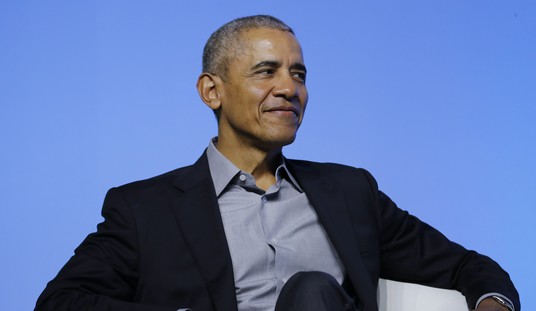One might not be familiar with the term “allopathic medicine,” an arguably derogatory term used by practitioners of “alternative medicine.”
“Allopathic medicine” in the current year is now commonly referred to simply as “medicine” — or sometimes “conventional” or “mainstream” medicine — thanks to the reengineering of the entire medical system by a tiny handful of 20th-century oligarchs including John D. Rockefeller and Andrew Carnegie.
A little-known document called the Flexner Report, so named for its author, Abraham Flexner, revolutionized the medical profession in the United States and throughout the Western world following its publication in 1910. Its impacts on the practice of medicine, today taken for granted, cannot be overstated.
Via Yale Journal of Biology and Medicine (emphasis added):
The Flexner Report of 1910 transformed the nature and process of medical education in America with a resulting elimination of proprietary schools and the establishment of the biomedical model as the gold standard of medical training. This transformation occurred in the aftermath of the report, which embraced scientific knowledge and its advancement as the defining ethos of a modern physician. Such an orientation had its origins in the enchantment with German medical education that was spurred by the exposure of American educators and physicians at the turn of the century to the university medical schools of Europe. American medicine profited immeasurably from the scientific advances that this system allowed, but the hyper-rational system of German science created an imbalance in the art and science of medicine. A catching-up is under way to realign the professional commitment of the physician with a revision of medical education to achieve that purpose…
The group [responsible for the Flexner Report] consisted of a Connecticut Yankee and Yale graduate, William Welch, the founding dean at Hopkins, a school established from the fortune of a Quaker merchant, Johns Hopkins. Welch was in large part the mastermind creator of Hopkins and its extensive reach and influence in medical education; he was responsible for the selection of William Osler, the Canadian son of a frontier minister, as its first chief of medicine. A third member of the group was Frederick Gates, a Baptist minister and trusted adviser to John D. Rockefeller. He was galvanized to help improve the scientific and therapeutic store of medical knowledge that he had recognized as being seriously impoverished following his reading of Osler’s Textbook of Medicine. Gates became the intermediary, the go-between, who convinced Rockefeller to provide his philanthropic resources* to achieve the goals of the group.
*Rockefeller, despite historical whitewashing, was anything but a philanthropist. He was a “philanthropist” in the same way sociopath-masquerading-as-heroic-nerd Bill Gates of the modern era is one — meaning not at all. Social engineering and economic gerrymandering are cloaked in the benevolent auspices of “philanthropy.”
Continuing:
The Flexner Report was embraced as the definition of the academic model that was to characterize American medical education up to the present. Its success was importantly assured by the huge financial gifts of the Rockefeller and Carnegie Foundations…
But the full-time system was not without its serious critics. The most vocal challenger and naysayer was William Osler, who was subsequently seconded by Harvey Cushing. Osler believed that the focus of such physicians would be too narrow, they would live lives apart with other thoughts and other ways. He was apprehensive that a generation of clinical prigs would be created, individuals who were removed from the realities and messy details of their patients’ lives. Osler believed that the Flexnerians had their priorities wrong in situating the advancement of knowledge as the overriding aspiration of the academic physician. He placed the welfare of patients and the education of students to that effect as more important priorities, although he reverenced the centrality of scientific knowledge in that regard. His mentee, Harvey Cushing, voiced the same sentiments, basing his reservations on his background of several generations of practicing physicians. Their voices were hushed by the irresistible seduction of large sums of money tied to implementation of the full-time system. Osler’s voice also was near silenced and no longer a force in this matter following his move to Oxford at the time this controversy was taking place. William Welch, the Carnegie and Rockefeller foundations, and Abraham Flexner were successful in the task they had set out to accomplish.
The “conspiracy theory” surrounding the prescriptions for the medical industry contained in the Flexner report and the ideological motivations of its sponsors and authors is that Rockefeller, who controlled roughly 90% of the U.S. oil industry at the turn of the 20th century, had his interest piqued in entering the industry by the possibility of propagating and normalizing the use of pharmaceutical products derived from oil.
Standing in Rockefeller’s way, the theory goes, was the widespread use of natural/herbal medicines, products that he viewed as impediments to his monopolistic ambitions.
Via Evidence-Based Complementary and Alternative Medicine (emphasis added):
Summarizing the context in which Flexner’s report appeared, modern scientific medicine—as it had emerged particularly with the French experimental physiologists in the 19th Century had come to be challenged by a variety of competing contemporary approaches within the medical marketplace (such as naturopathy, traditional homoeopathy, chiropractic, osteopathic medicine, and eclectic forms of therapy. And while having himself been trained in the scientific paradigm at Johns Hopkins University, Flexner developed a great reservation against the reliability and value of other “nonconformist” approaches in medicine and psychiatry which he pejoratively attacked as “charlatanism” and “quackery,” wanting to weed them out from the modern canon of North American medicine.
Take the alleged motivations of the purveyors of the Flexner report for what you will.
But if we have learned just one thing from the COVID-19 debacle, it should be that accusations of “quackery” coming from the branch of medicine represented by Anthony Fauci are hypocritical beyond description.
Related: Doctor Warns of ANOTHER ‘Alarming’ Side Effect of ‘Miracle’ Weight Loss Drug
Aside from perfecting emergency care (keeping the patient alive in the moment following severe illness or injury), modern Western medicine is an abject failure by any standard.
The U.S. has the highest chronic disease burden in the developed world, despite the fact that the U.S. spends the most per capita on healthcare. Life expectancy is on the decline. The devastating stats are legion. They don’t lie. America is both deeply sick in the metaphorical sense from a social standpoint and in the literal, physical sense.
Although the medical industry does not shoulder the whole blame, as the food supply is tainted and the population itself is largely conditioned to be decadent and lazy, it has demonstrably and inarguably not helped alleviate the disease burden caused by the toxic stew of factors limiting health.
There is simply too much money in sick care to incentivize any Public Health™ authorities to make any sincere effort to reform the healthcare system. Any lasting improvement to it is going to come from the bottom up.










